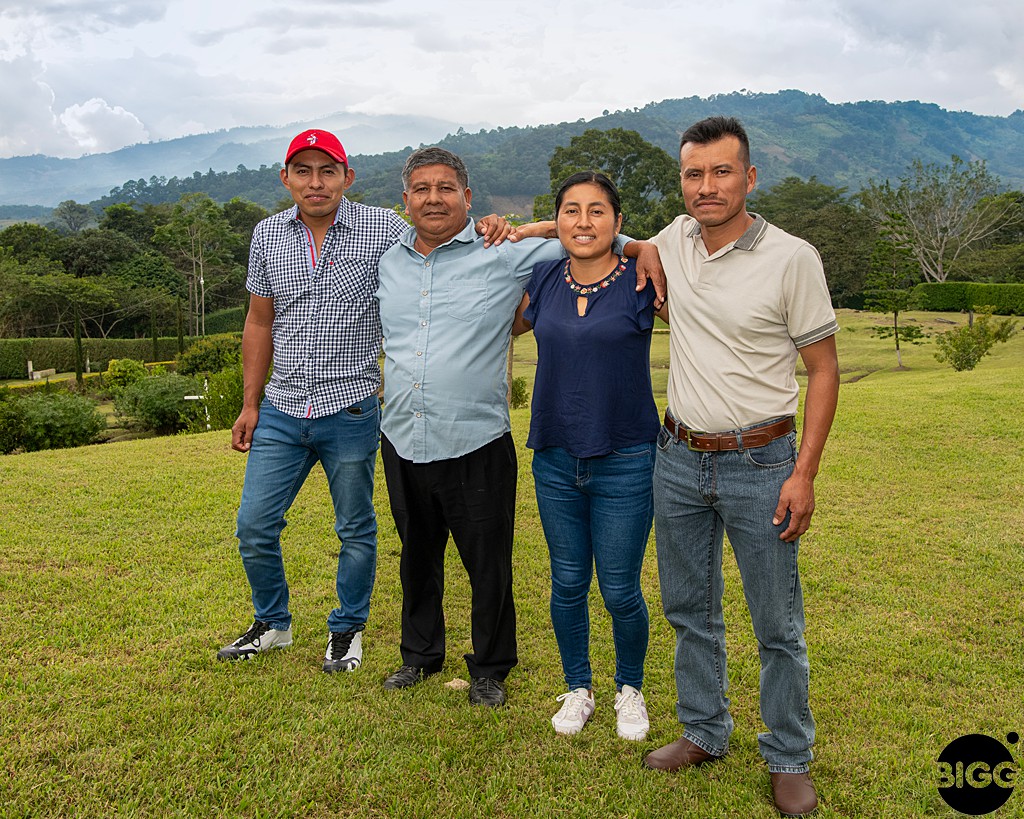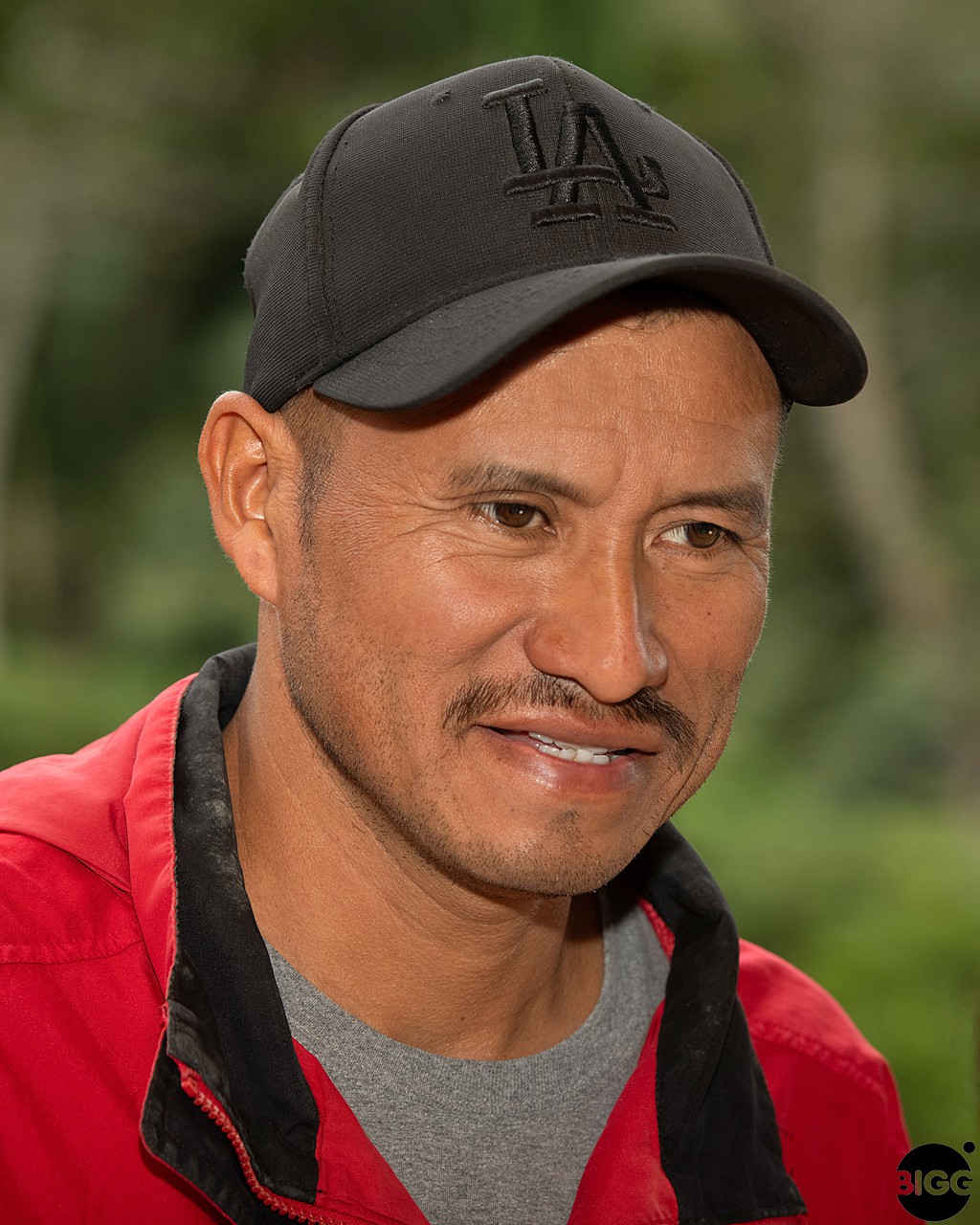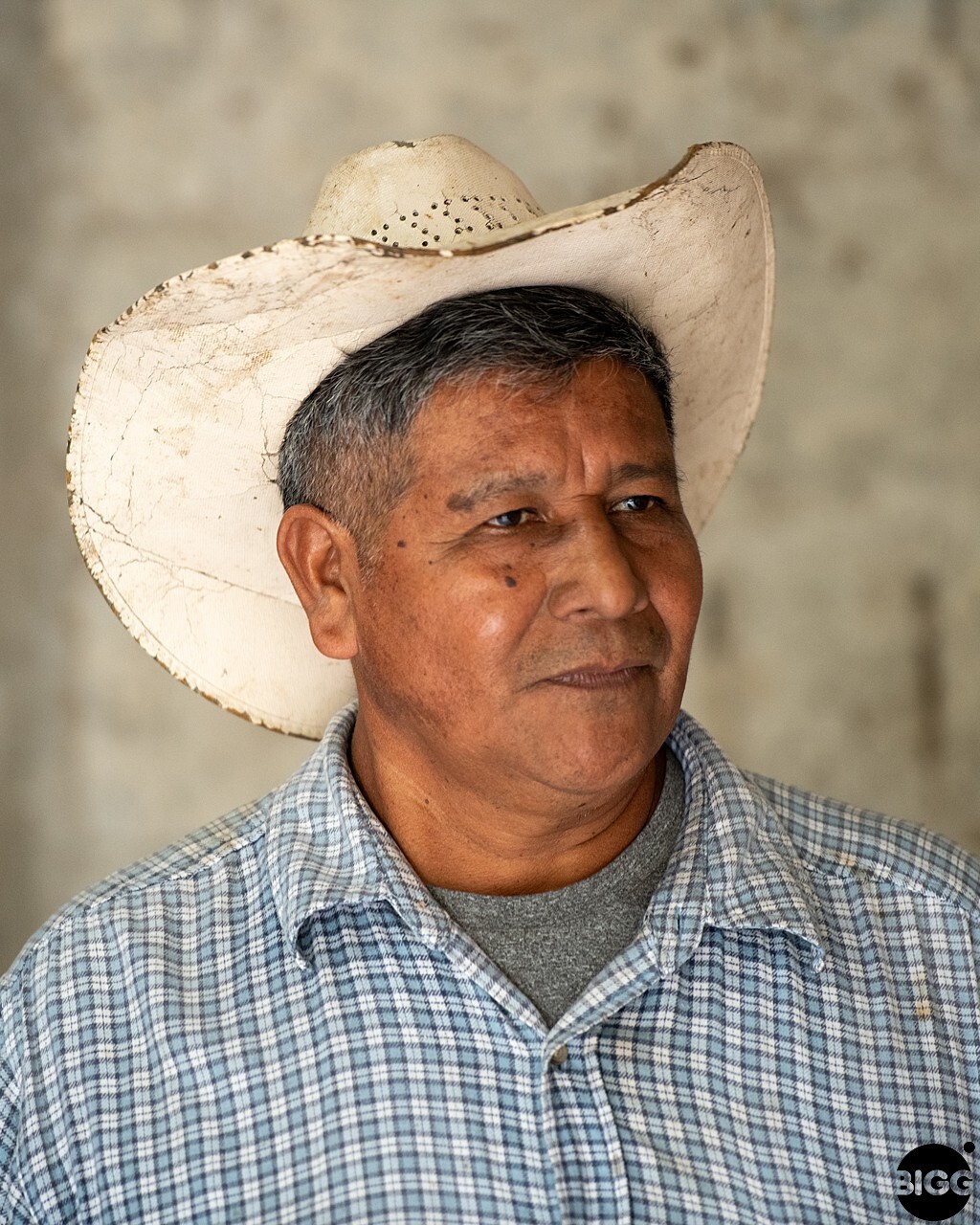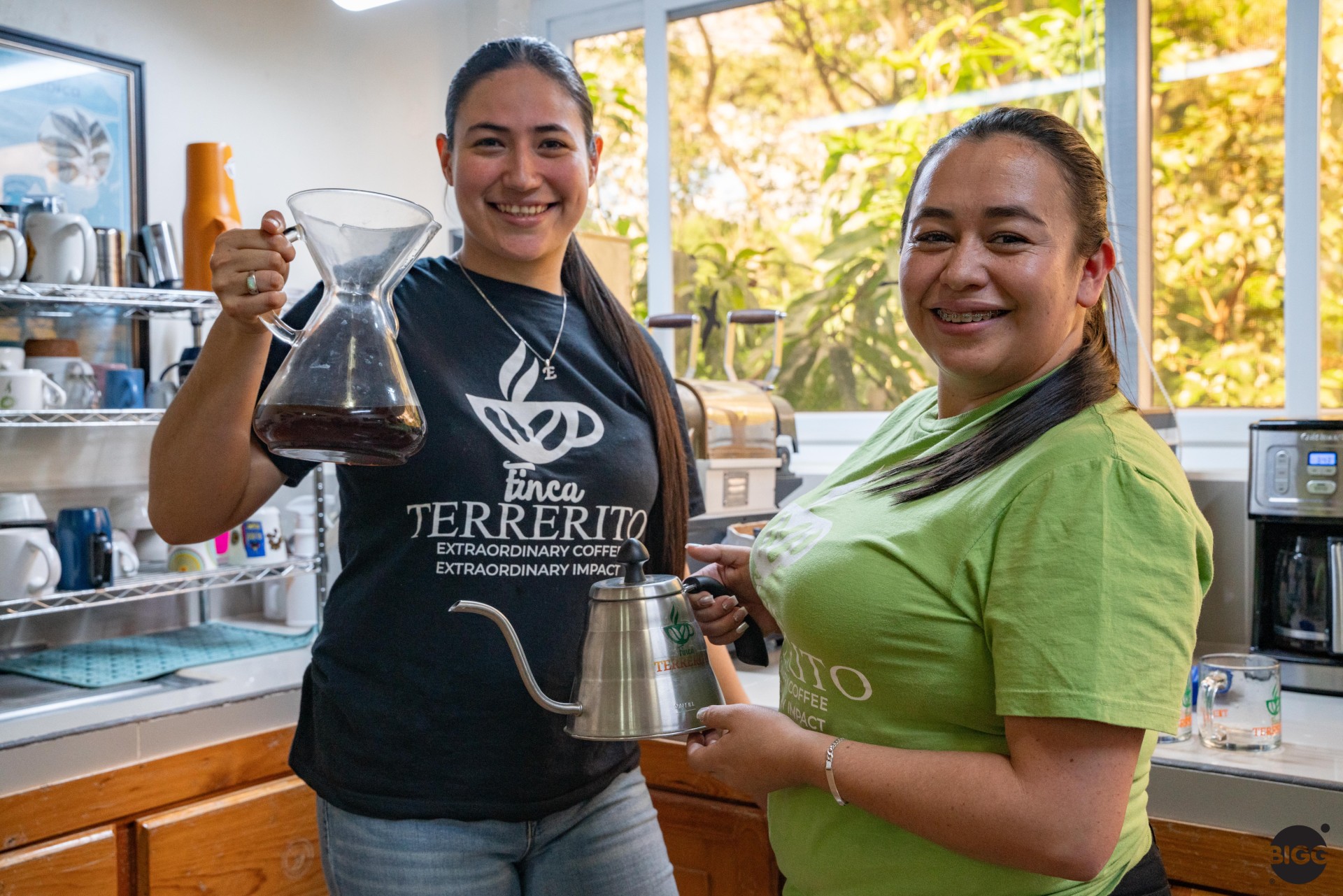What are Micro Producers?
60% of the world’s coffee is grown by producers who have less than five hectares of land, which is about 12 acres. Of that 60%, many of the coffee producers we’ve met have a lot less than 12 acres. I mean, A LOT less. We call them Micro Producers.
If you are interested in what that looks like on the ground, check out our stories about our Micro Producer partners in Chiapas, Mexico: Miguel Angel Cruz, Marta Sanchez, Salomon Demeza, and Pascual Hernandez.
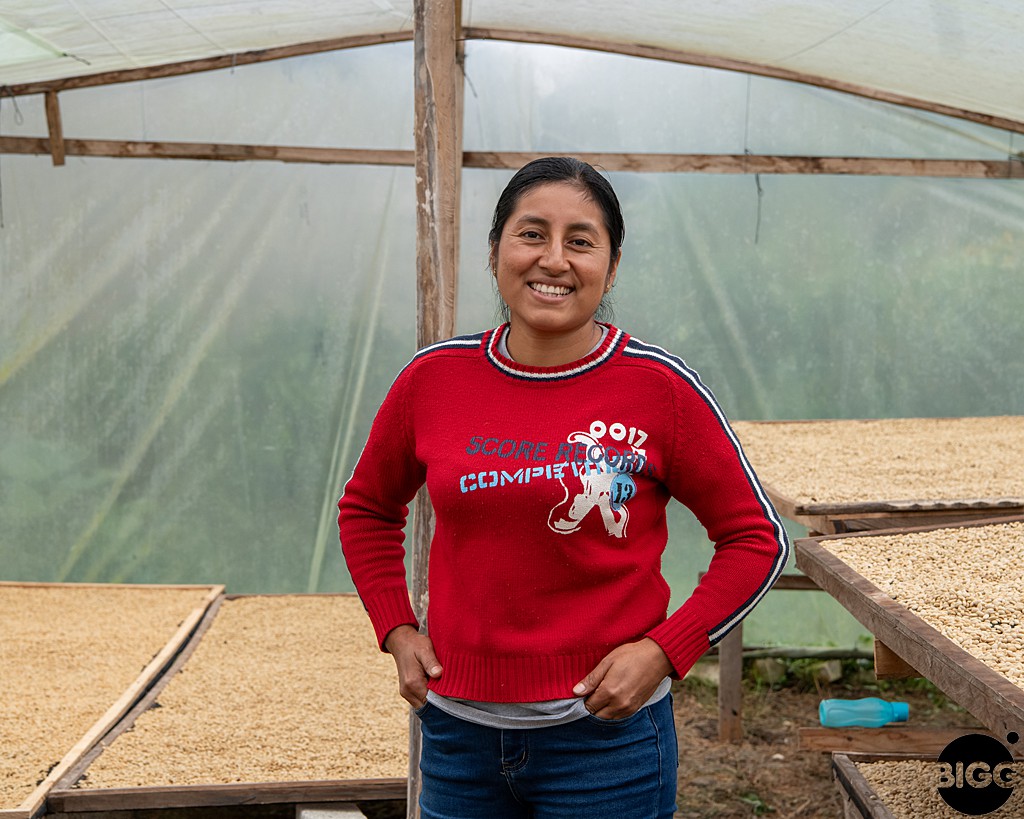
Marta Sanchez with her African drying beds in her town of Esperenza Morrison in Chiapas.
These farms are often remote and far from the infrastructure needed to prepare coffee for export. Things like washing stations, dry mills, and even transportation may not be available to them. Many that we’ve met don’t know how to read or write. They may speak an indigenous dialect, rather than the national language.
These farms are often remote and far from the infrastructure needed to prepare coffee for export.
Things like washing stations, dry mills, and even transportation may not be available to them. Many that we’ve met don’t know how to read or write. They may speak an indigenous dialect, rather than the national language.
So, while these coffee producers may be the MVP of your morning cup, they are at the bottom of the supply chain. They are locked out of direct access to the marketplace, and therefore vulnerable to an army of often nefarious middlemen.
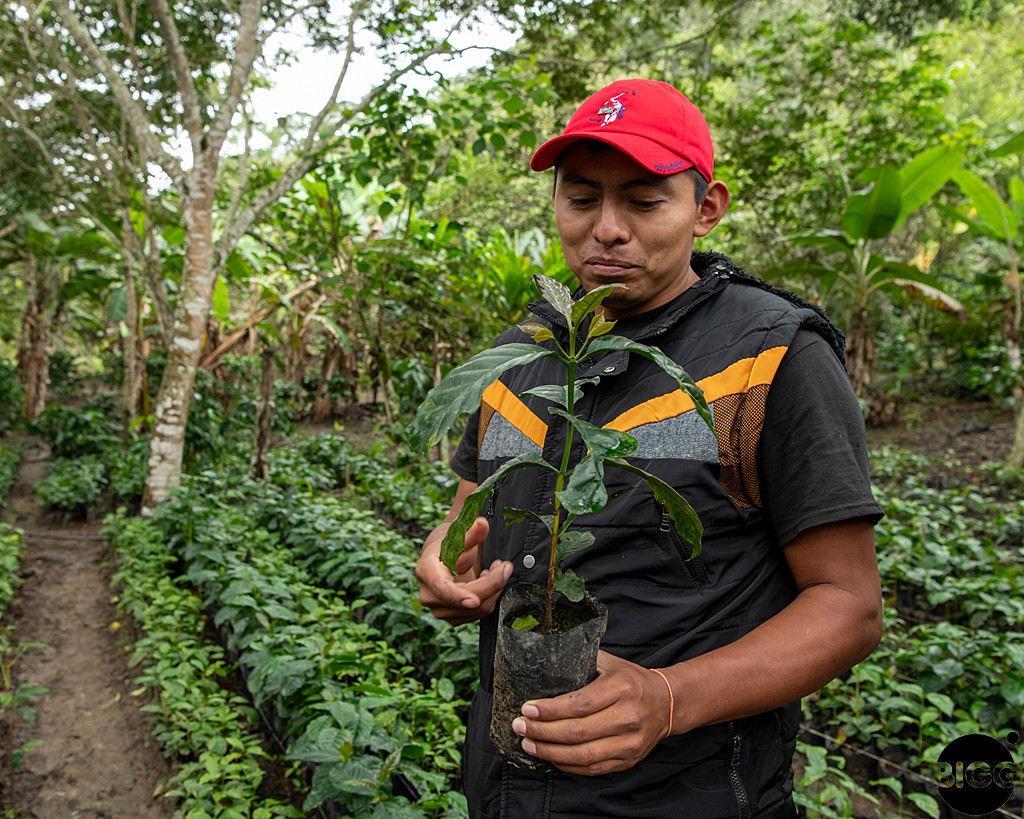
Salomon Demeza on his farm, Finca Buena Vista, in Chiapas, Mexico.

What That Means
The consequence is that they get sub-par pricing for their coffee, trapping them in extreme poverty. Over the last decade or so, many haven’t even been able to break even. They have no choice but to take what the cayotes – middlemen who pay cash for the day’s crop – offer them. After all, they need cash to be able to feed their families.
Throw climate change into the mix, and the pests, diseases, drought, and flooding that come with it, and it doesn’t take a lot of imagination to understand how dire the situation is.
Wet places are getting wetter, dry places are experience drought. Both are devastating for the coffee crop.OBIIS is on a mission to change the way coffee is bought and sold around the world. And, if we’re going to have a real impact on people and communities, then we have to find a way to reach small producers.
But Micro Producers are so small, and so far off the grid, that we couldn’t possibly find them on our own.
Our Partners
Fortunately for us, our Farm-Direct partners have given us a pathway. We first found our way thanks to the work of Maria Esther Saut and Pascual Castillo at Finca la Fortaleza. They work with more than 2,000 Micro Producers, providing them with technical assistance, coaching, and access to their processing facilities.
More than that, though, they are invested in helping those producers improve the quality of their coffee so that they can receive a better price for it on the international market.

Pascual Castillo and Maria Esther Saut in the fields of one of the Micro Producers that they work with.
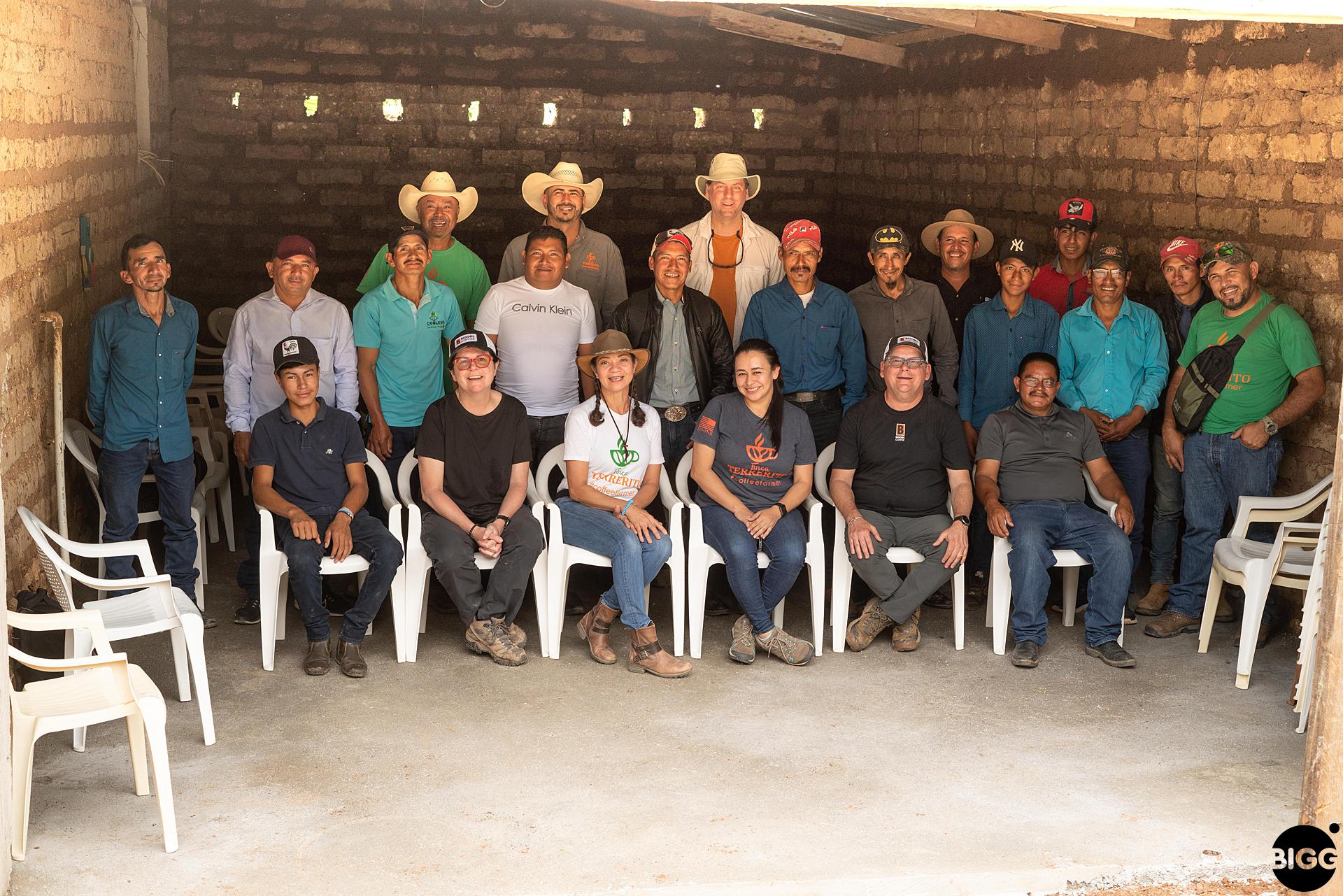
Through our partnership, we are purchasing coffee directly from small producers in four communities in Chiapas.
Those four producers were carefully chosen, in part, to ensure that they line up with our values centered around people, planet, and the community.
But just as important, they are all leaders in their communities. They are teaching their neighbors better agronomy, and quality assurance practices. As we grow, there will be the opportunity for more of their neighbors to take part in our partnership, multiplying the impact in their communities.
That partnership is in its second year now, and we are already beginning to see the positive impact that a fair price and a guaranteed marketplace is having for those producers and their families.
Al Lopez (back row, left) of Finca Terrerito, and the Micro Producers of San Sebastian, Honduras.
Finca T
Our newest partner, Al Lopez of Finca Terrerito in the town of Corquin in the Copan region of Honduras, is also providing a pathway for OBIIS to the smallest of producers.
Soon after Al started exporting Finca T coffee to the United States, he was approached by a few very small producers from near the town of San Sebastian, about a three hour truck ride from the Farm. They had heard that he was selling his coffee at a good price, and they wondered if he would buy theirs, too.
It took some time to establish a relationship with them, built on mutual trust, respect, and shared values, but he now works with about 20 Micro Producers, and we buy their coffee through our partnership with Finca T.
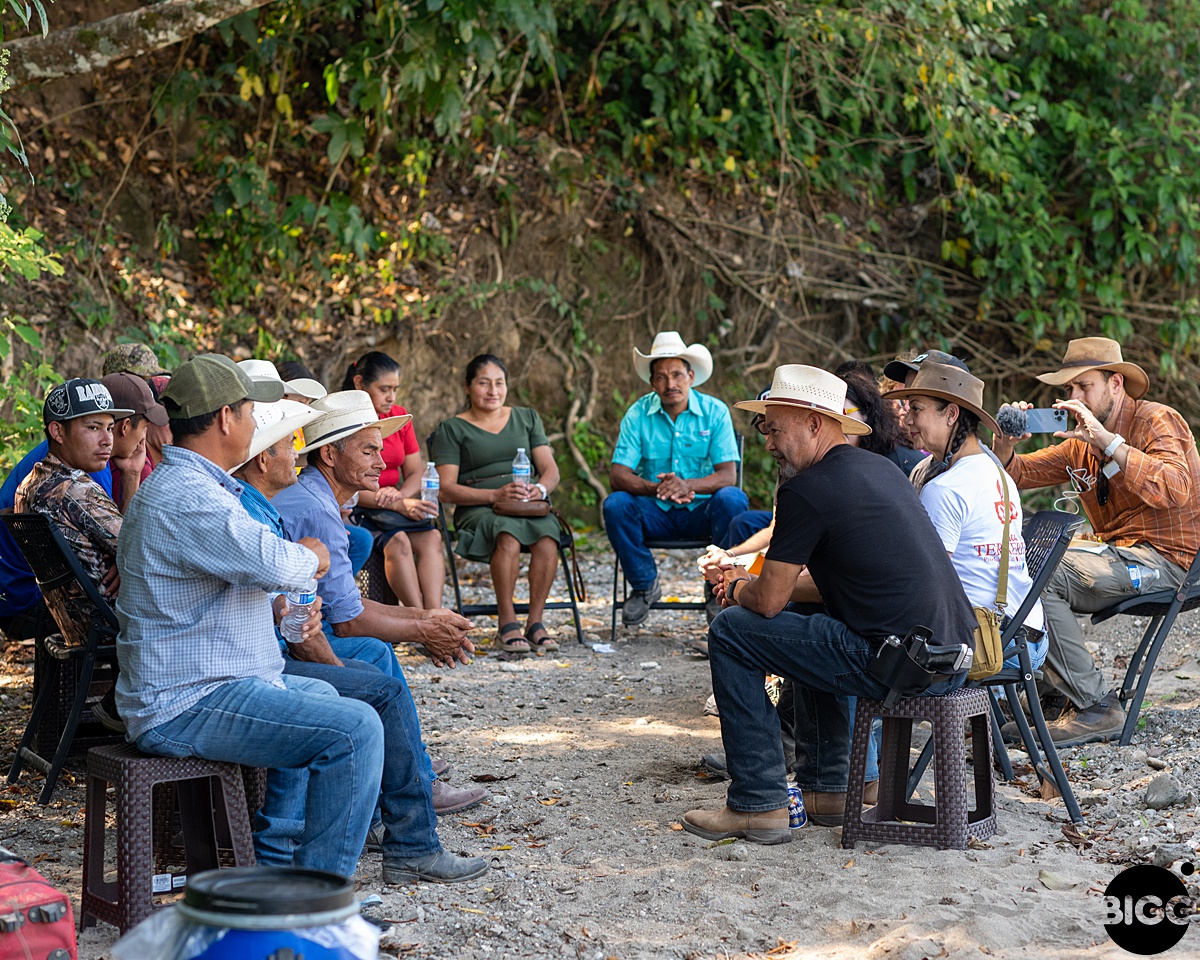
Sharing a meal and a conversation with the Micro Producers of San Sebastian at Finca T in January of 2024.
When we visited in January of 2024, we had a chance to sit down with those Micro Producers for a meal and meeting. All of their farms are smaller than 10 acres, many smaller than five.
They all expressed their gratitude to be part of our partnership. But for small producers who have so often been at the losing end of every coffee transaction, it takes time to build trust. For now, they’re happy we’re here, but they still aren’t sure we’re real.
I can’t wait to see how things look five years from now, when the benefits of a fair price and a guaranteed marketplace take shape in their lives and their communities. That’s where the real magic will happen: Micro Producers being able to fulfill their dreams for their families and unleash the potential for generational change in their communities.

